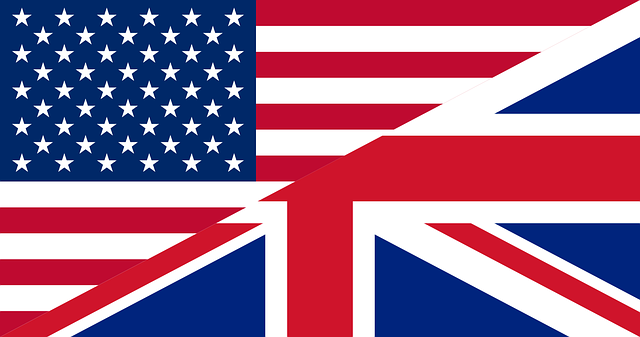Uncategorised
- Details
- Written by Anton
- Category: Uncategorised
- Hits: 29673
Title: Tea and Memories
Introduction: In this scene, two former colleagues, Victor Landon and Jason Blythe, run into each other while shopping for tea at Harrods. As they catch up, they reminisce about a past mission with their boss, Colonel Cartwright, and reflect on how something as simple as a cup of tea can bring back fond memories.
Jason Blythe is a British secret agent who has worked for many years with his colleague and friend, Victor Landon. Victor is a CIA operative who has often provided support for Jason on previous missions. Together, they have tackled dangerous assignments all over the world and have become known for their unwavering loyalty and expertise. In this scene, they run into each other while shopping for tea at Harrods, a department store in London. Although they are taking a break from their work, their conversation reveals the close bond that has developed between them over the years.
Victor Landon: Jason, what are you doing here? I thought you were on leave.
Jason Blythe: Victor! Just picking up a gift for Colonel Cartwright. What about you? Shopping for tea?
Victor Landon: No, just browsing. I've always been a fan of the tea selection here at Harrods.
Jason Blythe: Same here. They have some of the finest blends in the world.
Victor Landon: Speaking of Colonel Cartwright, do you remember that time we were on a mission in India and she was insistent on only drinking tea from that one particular estate?
Jason Blythe: (laughs) Yes, I do. he can be quite particular about her tea.
Victor Landon: It's funny how something as simple as a cup of tea can bring back such fond memories.
Jason Blythe: It's a shame we don't have more time to catch up. I feel like we've been so busy lately.
Victor Landon: I know, it's been a wild ride. But we always seem to find a moment to enjoy a cup of tea together.
Jason Blythe: (smiles) That we do.
Victor Landon: So, what blend are you getting for Colonel Cartwright?
Jason Blythe: I was thinking of getting him the Earl Grey blend. I hear it's one of the best here.
Victor Landon: A classic choice. I'm sure he'll appreciate it.
Jason Blythe: (looks around the tea department) You know, this place has changed so much since I was last here.
Victor Landon: It has. But the quality of the tea still remains the same.
Jason Blythe: Indeed. I better get going. I don't want to keep Colonel Cartwright waiting.
Victor Landon: Of course. It was great seeing you, Jason.
Jason Blythe: It was great seeing you too, Victor. Until next time.
Victor Landon: Until next time
- Details
- Written by Anton
- Category: Uncategorised
- Hits: 9190
As a professional actor or voice artist, you know the importance of having a versatile range of accents in your arsenal. Amongst the most sought-after accents, the Received Pronunciation (RP) accent is a true standout in the acting and narration world. Despite the shared language between the UK and the US, nailing the RP accent can be a challenge.
The RP accent is characterized by its non-rhotic quality, rounded lips, and seamless connection of sounds. To master this accent, you'll need to train your articulators and focus on the individual vowel sounds, building up muscle memory with each repetition. Pronunciation is just the first step, as the RP accent is more than just how you say words. It's also about the natural rhythm and intonation in your speech, bringing personality to your performances.
Don't settle for an outdated, exaggerated version of RP. Learn the modern nuances and variations of the accent and adjust your speech for the unique characters you bring to life.
Schedule a free 20-minute consultation with me today and start on the path to mastering the RP accent. Contact me at This email address is being protected from spambots. You need JavaScript enabled to view it. (Please remove the space after the @ sign.)
Experience the difference an authentic RP accent can make in your performances.
- Details
- Written by Anton
- Category: Uncategorised
- Hits: 26004
There are twenty vowel sounds in British English pronunciation. This includes seven short vowel sounds, five long vowel sounds, and eight diphthong vowel sounds. We can further categorize each vowel sound according to their respective positions on the monophthong chart. For further materials, sign up here.

The short vowel sounds 短母音:
1.æ cat, man, hat, van, black
2.ɪ kit, big, hit, live, rich
3.ʊ book, wolf, hood, wood, could
4.ɛ send, end, bed, red, desk
5.ɒ hot, top, box, dog, strong
6.ʌ sun, duck, bulb, bus, hut
7.ə again, adapt, advance, across
The long vowel sounds 長母音
8.iː sleep, need, feet, heat
9.ɜː nurse, bird, third, curse
10.ɔː talk, fall, north, horse
11.uː new, noon, too, few
12.ɑː car, far, hard, large
Diphthong vowels 二重母音
13.ɪə near, hear, fear
14.eə hair, pair, there
15.eɪ rain, lane, main
16.ɔɪ noise, toy, coin
17.aɪ rice, kite, my
18.əʊ no, those, low
19.aʊ how, round, loud
20.ʊə pure, cure, tour
Front vowels 前舌母音: æ ɪ iː ɛ
Central vowels 中舌母音: ə ɜː ʌ
Back vowels 後舌母音: uː ʊ ɔː ɒ ɑː
A cup of tea please (ə kʌp ɒv tiː pliːz)
A bottle of water (ə ˈbɒtl ɒv ˈwɔːtə)
Made in Japan (meɪd ɪn ʤəˈpæn)
I’m Japanese (aɪm ˌʤæpəˈniːz)
- Details
- Written by Anton
- Category: Uncategorised
- Hits: 35112
This course is catered to those who speak General American English.
Perhaps you are an American expat living in the UK, a diplomat who wishes to blend in with the crowd, or maybe you are an aspiring actor who wishes to master the subtleties of Received Pronunciation. Whatever your goals, this course is for you.
The methods for teaching Received Pronunciation should differ depending on the student's background. Teaching RP to a native English speaker should differ to the methods used for non-native speakers. British English pronunciation and American English pronunciation, while different have many common aspects. The breathing mechanism for both accents is similar, but the use of vowel sounds differs.
In American English, the jaw tends to be more slack, whereas with Received Pronunciation there is more focus on the rounding of the lips. It's really not that difficult for most Americans to put on a British accent, however it can often be too polished, a little old fashioned or the intonation can be a bit too exaggerated. This is fine if you want to develop a command of the British accent for the sole purpose of film and drama, but if you want to blend in with certain circles, you need to be aware of the different forms of RP. There are conservative, traditional and modern forms of RP. We should also be aware of pitch, intonation and voice inflection.
Unlike acting and drama, everyday conversation should come across as natural and not too over the top. You may even notice this with some Hollywood actors. Their command of the British accent can sometimes be almost too perfect, making it sound a little unnatural. This course focuses on the more natural and modern forms of Received Pronunciation. Students are also free to adapt and adjust their accent according to their purpose.
During this course, students are introduced to the International Phonetic Alphabet and given an overview of the differences in the physical movements. We will identify the key differences between the two accents. Once we have covered the basics, we can practice speaking exercises.
---------------------------------------------------
Interested in 1:1 coaching via Zoom? Contact me directly: private_tuition@ receivedpronunciation.com (Please remove the space after the @ sign.)
Subcategories
Page 5 of 7



